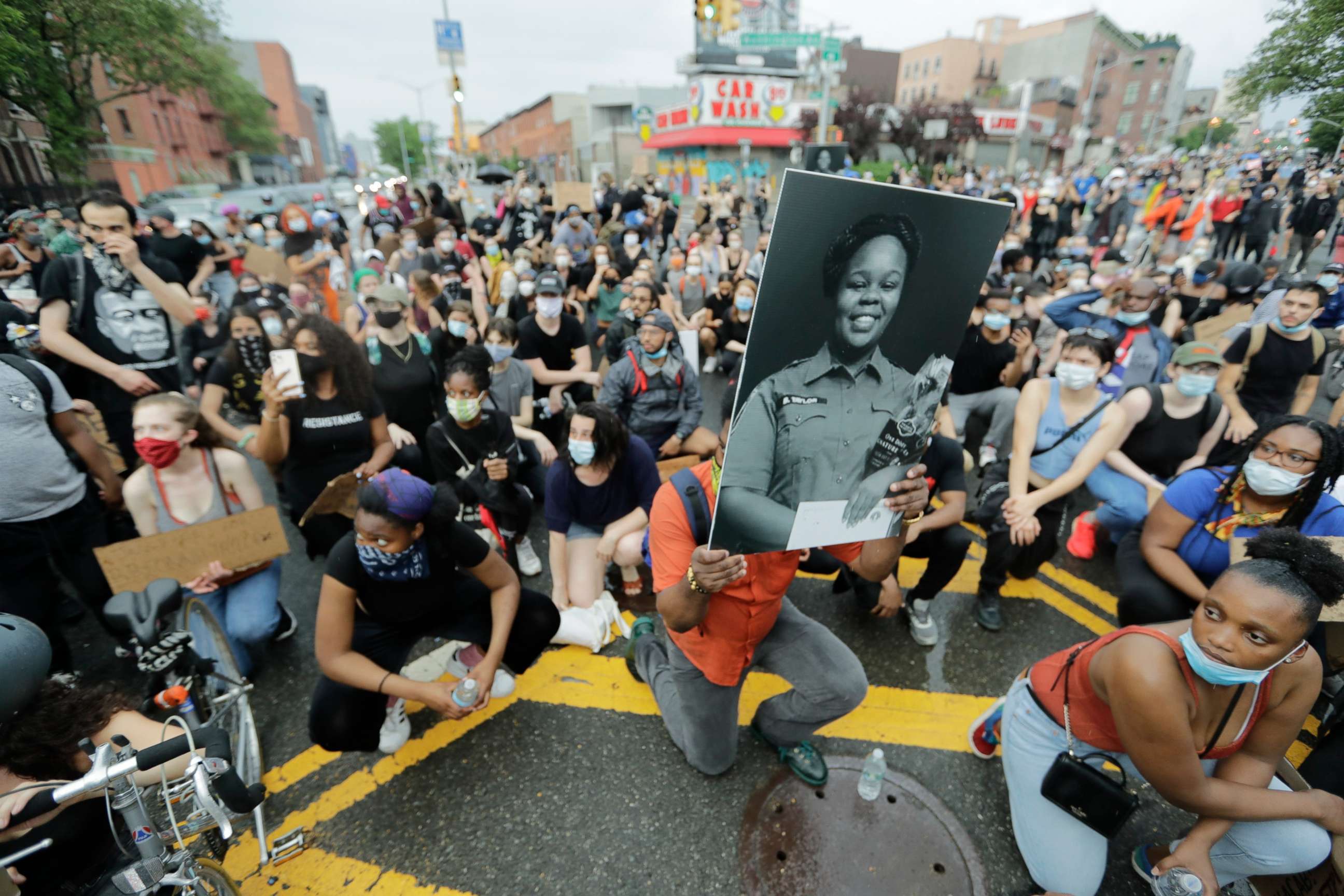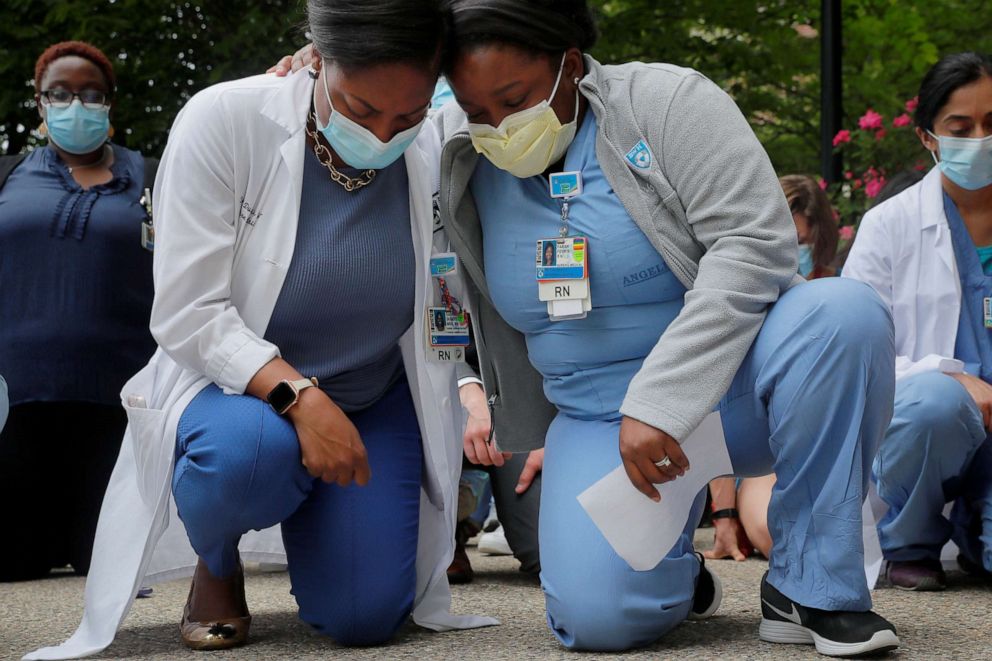The 4 stages of learning about racism: Opinion
A black doctor asks white people "to better understand the labor we carry."
I think many of my non-black colleagues are -- finally, in the wake of George Floyd's death -- realizing that this is an actual problem I've been dealing with for my entire life.
I have to have these conversations and interactions on a daily basis. Some can understand the discomfort one feels when you're not sure if a pleasant interaction will become racially hostile.
There's an important tool I've gathered in my handling of racism. Interestingly enough, it's something I've used since tutoring physics in college. I had to educate myself how someone learned, and then figured out how I could help them.
Now, I find this framework helpful in evaluating racism. For example, there are four stages of learning.
Stage 1: Unconscious incompetence
Is the person "unconscious," meaning they don't know, or is the person "incompetent," meaning they can't do it? If they say, "I don't know about racism," then this person will need a lot of time to be explained racism, its history, its existence, whom it affects and why it's important.
Many would say, "Stop here, it's too much effort." But I personally believe this is an OK starting point, because some learners possess tremendous empathy and have potential for quick adaptation.

I'll test with an example, note their response, and then decide if it's worth my time.
Example: "I was recently trying to rent an AirBnB in California, and I didn't get the place. But when I asked my white partner to try on his account, he got it -- this is something we do often. Why do you think that happened?"
Sometimes I'll see potential and share concrete examples, like this one.
This can either be a long or a short course of education. I'll have to figure out my desire to be a part of this long-term plan -- or not.
Stage 2: Conscious incompetence
You're aware of racism, but you don't know what to do about it. This is where most well-meaning white people are in this moment.
"Sure it exists, But there's nothing I can do to fight it," or, "Yes, it exists, but what do I do?"
This is a tricky stage, and sometimes it's not worth my time. Sometimes I'll use examples of the civil rights movement and discuss citizens who weren't actively involved. I'll assess if they think complacency is a problem.
From there, it can go uphill, not move, or go all the way downhill, where their deliberate ignorance can be unearthed, and then -- bam! -- I'll have a lifelong series of awkward interactions with this person where they believe an admission of their ignorance is "losing the argument."
I have to be careful with these learners. In times of stress, racism can be exposed and really waste my time and ruin my day.
Stage 3: Conscious competence
This learner understands there's an issue and is actively participating to learn. Depending on the depth of ability to self-educate, it can sometimes really be easy for me. I don't have to use a lot of my time. There will be moments when the learner checks in -- after doing their work -- with a breakthrough. It's sometimes nice to be a part of that.
I've recently had this happen with a good friend. It made me emotional because he did the work, realized slowly that he could be an active participant in anti-racism, and he's transitioning to the next level.

Stage 4: Unconscious competence
This learner's skills are embedded in their actions. This is a level that some argue is impossible due to the implicit structural bias our entire world is based on. But I think of this level as the person who is fully aware of their need to actively fight racism and understands that it doesn't stop at an Instagram post.
This learner uses their privilege in everyday interactions. This learner is always that "annoying" staff member asking the question of, "Why is this office not diverse?" and then going beyond that with, "What am I doing wrong?" This is a good stage that has exponential potential.
Now that I've taken you through my "mini assessment" of interpersonal education on the value of my life -- a task that I do every day -- I'd like you to understand the most important part of all of this: Can you imagine what I could do with my time if I didn't have to do this on a daily basis?
My being tasked with the education of others is, in fact, an oppression. It affected me in how I navigated medical school, how I navigated residency and how I move through spaces as an attending physician.
My intelligence and merits were questioned by my peers as "affirmative action," despite my outperforming them in nearly every environment.
Patients have handed me their empty food trays or garbage, assuming based on the color of my skin that I must be a part of the janitorial staff.
My black patients have been profiled directly in front of me, with white colleagues making callous observations of their hair or their temperament that were loaded with dangerous, biased assumptions.
And yet, I still have to go to work -- even in a global pandemic, even as my people fight for their lives on our streets -- to treat people. I am not just asked to treat our patients, but I'm also asked to help cure the cancer of racism in my workplace, too.
I am exhausted.
I want white people to better understand the labor we carry, and I want to see them willing to do more work before asking questions. I do not want my empathy or time to be taken for granted.
Now is the time for us to all move beyond postures on social media. Buy a book, open your wallet, get out in the streets, support black-owned businesses, learn the names of the fallen, call out your racist family members, start your own difficult conversations, hire more black people, educate your kids.
My whole life, I had to live and learn in a white man's world and a white man's institution. I achieved a lot. But imagine what I could've accomplished if whiteness weren't in my way?
Dr. Darien Sutton-Ramsey, M.D., MBA, is a contributor to the ABC News Medical Unit.




